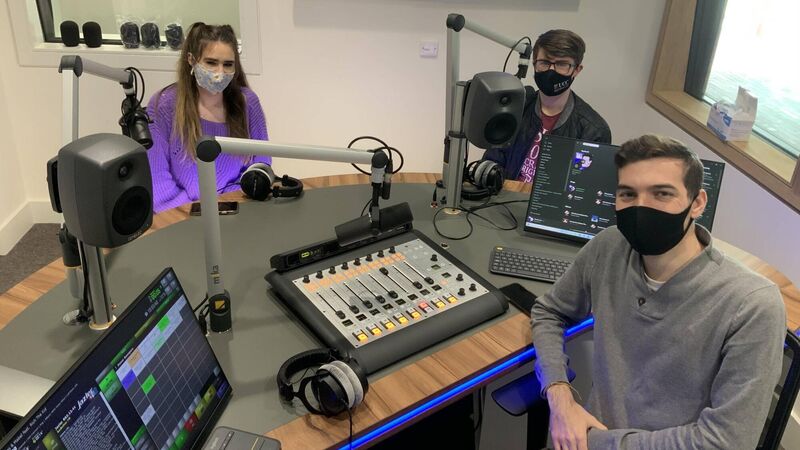Staying on air: How UCC's radio station has continued to broadcast through lockdown

A file picture from the studio of UCC 98.3 when more than one broadcaster was able to enter the studio.
It’s been a part of life for countless students over the past 25 years, but UCC’s 98.3FM student radio station, remains at the heart of campus culture. Formerly known as Cork Campus Radio, the station provides a non-commercial platform for students and staff of the college, as well as radio and broadcasting students from elsewhere in Leeside academia, and a handful of long-running volunteer presenters.
“The station was established in 1995, and it broadcasts from UCC’s campus to a 40km radius, 24/7, including live daytime programmes and evening repeats, as well as documentaries made by students and staff,” explains UCC 98.3FM programming director Kieran Hurley.




